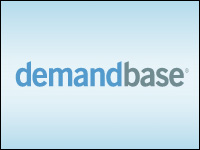
Sales are down. You don’t even need to add a qualifier to that sentence — such as industry or name of company. Across the board, corporate and consumer sales are down.
Enter firms like Demandbase, which promises the latest in lead generation functionality. The company debuted last year with Demandbase Central, a Software as a Service platform that consists of sales and marketing applications, as well as a search, scoring and transaction engine capable of identifying qualified sales leads.
From there, Demandbase planned to move quickly into its next phase of product development: a lead-generation application that leverages a company’s Web site visitors. It rolled out the new product earlier this month, as scheduled. What the company hadn’t planned on, however, was launching it into such a dicey economic environment.
Given the demand for sales leads, the timing couldn’t have been better, Demandbase CEO Chris Golec told CRM Buyer in an exclusive interview.
CRM Buyer: How is Demandbase weathering the economic downturn?
Chris Golec:
Actually, our basic business model — helping companies generate sales leads — has meant that it has been good for us. Companies are looking to generate revenue. Also, we raised financing last summer, so we have plenty of cash on hand. We are adding people as we grow and roll out new products. We will probably increase by 10 to 20 percent our workforce this year — basically, that means five or so new people in sales and marketing.
CRM Buyer: What are some of the cost-cutting measures you’ve taken?
Golec:
We are focusing on cost allocation: less marketing, for example, and other such activities that don’t have a tangible [return on investment]. We have also held off on some of the bigger corporate and industry events we had planned on, because of the amount of capital and time necessary to do those right.
CRM Buyer: How can your products help your customers’ bottom lines in the near term?
Golec:
We can help both bottom-line and top-line growth. Our application takes Web traffic [from a client’s Web site] and from that we can generate two or three times as many leads [compared to traditional lead-generating activities]. That is twice as many selling opportunities for the same investment, which means more revenue. Generally speaking, maybe 3 percent of Web traffic for a corporate Web site is actionable — our products focus on the other 97 percent.
CRM Buyer: What are some of the bright spots for your company right now?
Golec:
We are growing 30 percent quarter over quarter. If we can continue that pace, we will have a much higher revenue rate a year from now.
CRM Buyer: How will your company look a year from now?
Golec:
We are going to be larger, in terms of our staff, and very close to profitability. Also, we are transitioning from a place to buy business contacts to more of a subscription-based lead generationservice.
CRM Buyer: This new release — the first major one since your launch — is part of the transition?
Golec:
Yes. Our first major announcement was for a product that helped marketing and sales people with outbound activities. That product has done well. This new product is all about inbound activities.
CRM Buyer: How does it help companies capture that other 97 percent of Web visitors that aren’t “actionable,” as you put it?
Golec:
Let’s say a Web site was using Demandbase. It could tell, for instance, that someone from — to just give a hypothetical example — HP’s printing division in Eugene, Ore., had visited the site looking for product information. The application would then connect that lead with the closest available marketing contact in that company’s location.
CRM Buyer: To be honest, it sounds like there is a high creep factor involved for employees who are visiting these sites.
Golec:
Not really — for a lot of reasons. One, the application cannot pinpoint the exact person who visited the site. All it does is tell you there was a visitor and who is the most appropriate person tocontact, based on what you sell.
Also, companies are strategic in where they deploy Demandbase. A magazine company wouldn’t put it on its editorial pages, but it might put it on its ad rate pages to see who might be interested in advertising with it.
CRM Buyer: What type of companies are using Demandbase right now?
Golec:
Any business that sells to other companies. Banks and financial service companies, for example. But we are also getting interesting one-off types of deployments too. For example, we have a local restaurant that has put it on its corporate facilities page — it doesn’t capture people who might be interested in the menu, but [it identifies] companies that might want to use the restaurant for an event.





















































